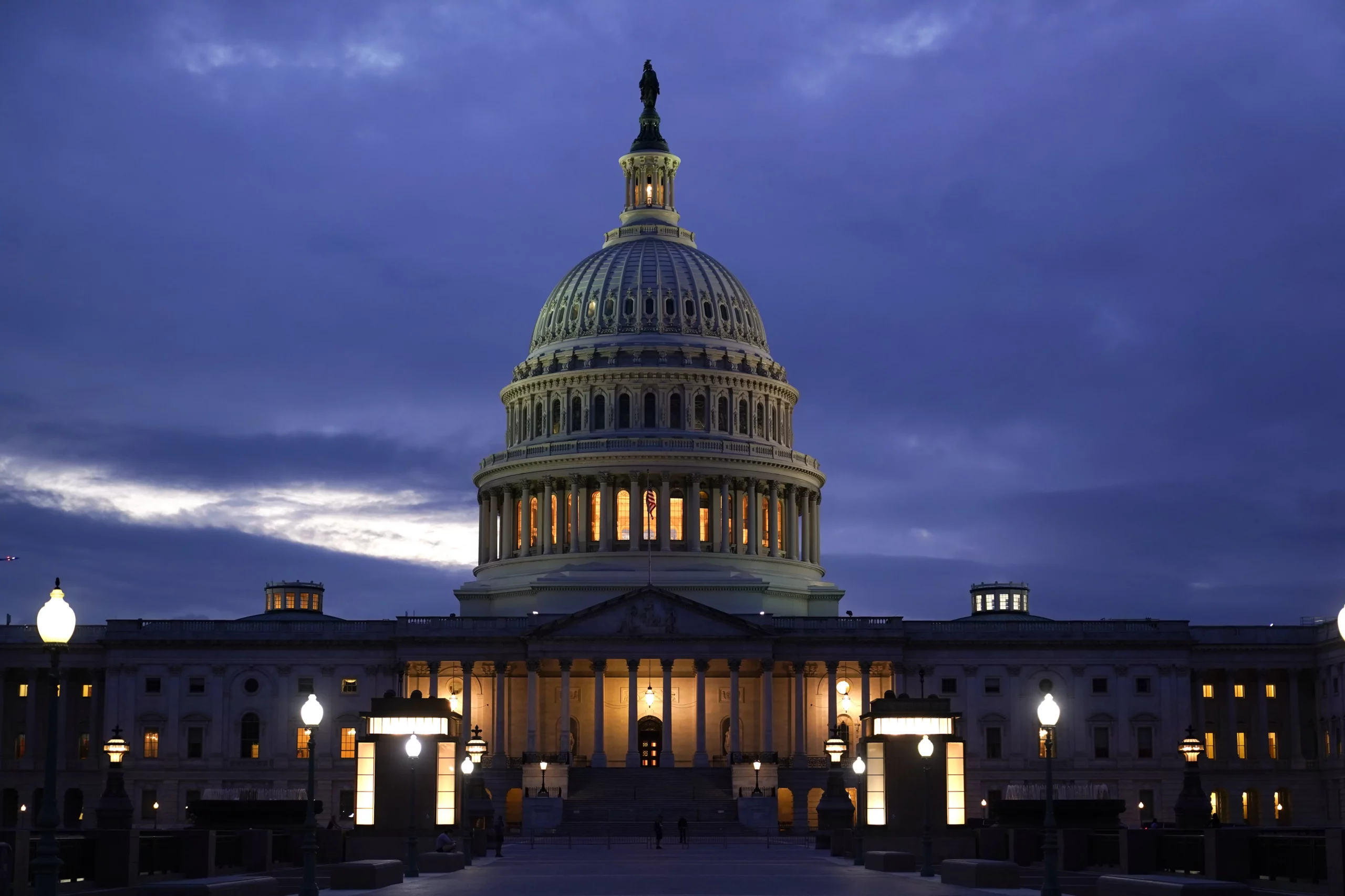

Washington, D.C., has always had a strained relationship with the rest of the country and the federal government most of all. It sits as a quasi-state, with some representation in the House and in the Electoral College but without a say in bedrock values such as the ability to vote on tax rates — something the Founding Fathers were particularly concerned about.
That isn’t to say Washington is unhappy with the way the federal government does things, especially when Democrats are in control, though despite its status as the deepest-blue part of the country, it has its disagreements with both parties from time to time. However, Republicans and President-elect Donald Trump have particular gripes with the district, and their control of the House, Senate, and White House next year could shake up how Washington and the government work together.
This week, we are examining the ways a second Trump administration is going to change the relationship between the federal government and the district that hosts it. Normally left to its own devices, the capital that revolted against Trump during his first term is squarely in his sights as he prepares to return, and Breaking News Reporter Brady Knox has looked at a handful of ways the president-elect will have more leeway to throw his weight around in the district’s governance thanks to allies in Congress.
“While Trump did little with Washington, D.C., during his first term, the city has drawn his ire since leaving office. Residents saw a stark rise in crime after the pandemic, more so than other urban areas around the country, though it’s now trending downward,” Brady wrote this morning. “That, and the council’s overhaul of the criminal code in 2022, is playing into Trump’s vision that crime in the city is out of control.”
When he was on the campaign trail, Trump promised more than once federal action to “take over” the “filthy and crime-ridden embarrassment to our nation.”
“Taking over” a district that already has shared control of its own laws with Congress is nebulous, but Republicans could seek to federalize the district further and strike down home rule, giving lawmakers even more control over the lawmaking process for Washington.
While there is a division between federal law enforcement officials and the D.C. Metropolitan Police Department, Trump has toyed with the idea of using National Guard soldiers to police the district. Unlike states with governors who have control over National Guard units within their borders, Mayor Muriel Bowser wouldn’t have the authority to send troops ordered onto her city’s streets by Trump away.
There is some precedent for such an action when as many as 25,000 troops were sent into the district for months after the Jan. 6 riot at the Capitol.
It’s more likely, however, that Republicans would flex their muscle in a more covert way by stepping on the Council of the District of Columbia’s ability to write and pass legislation. The council’s moves are already restricted by congressional oversight, and that isn’t always a partisan slam dunk for the left-leaning group of local lawmakers.
“Washington, D.C.’s self-governance gained national attention at the beginning of 2023 after the city council passed a sweeping criminal justice reform bill,” Brady wrote. “The bill lessened the mandatory penalties for some crimes, such as carjackings and burglary, and expanded who was eligible to have their sentences lessened as well as expanded access to jury trials to address capacity issues in the courts. Many national politicians painted the bill as soft on crime.”
Pushback from Congress was bipartisan. The House and Senate were unified in telling Washington it couldn’t roll back criminal penalties so severely, with 81 senators, including 14 Democrats, voting in favor of overruling the council.
Trump has hinted he would consider taking oversight a step further and eliminating Washington’s home rule altogether, though it’s not clear what that would look like.
Lawmakers have floated various proposals to strip local lawmakers of their power, with Rep. Andy Ogles (R-TN) introducing a bill to repeal home rule last year and Sen. Mike Lee (R-UT) introducing a similar bill that was co-sponsored by Sens. Marsha Blackburn (R-TN), Cynthia Lummis (R-WY), and Rick Scott (R-FL), Brady wrote.
However, even though Democrats have stepped out of line in the past to slap down moves made by Washington lawmakers, the likelihood they are willing to sap them of their power completely is near zero.
Click here to read more about what Washington, D.C.’s relationship with the federal government will look like in the coming years.
Trump’s birthright threat
The president has a lot of power, but it’s not unlimited. Trump ran into that reality midway through his first term when he said he wanted to strike down birthright citizenship but found every avenue to do so blocked by the Constitution.
First-term Trump was still learning how Washington operated. He relied heavily on staffers and advisers who had been around government for their entire careers and often picked people who fundamentally disagreed with his vision for governing.
Trump said he has learned from those experiences, and instead of changing his goals, he is leaning on people who want to achieve the same things as him. And at the top of that list is finding out how to eliminate protections for birthright citizenship seeded in the 14th Amendment.
Striking down the protection has been a project for Trump, and over the weekend, he said it’s something he intends to make happen on Day One of his second term.
Immigration Reporter Anna Giaritelli is up with an item this morning that helps explain why that feat is unlikely to happen quickly and what Trump’s strategy might be to work around what his team argues is the apparent constitutional right anyone who is born on U.S. soil has to become a citizen.
“I was going to do it through executive action [during the first term], but then we had to fix COVID first, to be honest with you. We have to end it. It’s ridiculous,” Trump said. “We have to get rid of this system. It’s killing our country.”
Trump’s allies have tried to lay out a case that using an executive order is constitutional because birthright citizenship isn’t expressly laid out in the 14th Amendment.
“President-elect Trump is right. The 14th Amendment was ratified in 1868 to extend citizenship to freed slaves and their children. It was never intended to reward illegal aliens for breaking our laws,” the Heritage Foundation, a conservative think tank that has operated as a pseudo-policy shop for Trump, wrote in a post on X. “While President-elect Trump can end birthright citizenship by executive order, Congress should exercise its Section 5 powers of the 14th Amendment to permanently end birthright citizenship and prevent the children of illegal aliens from automatically becoming citizens of the United States.”
Heritage’s argument runs along the lines of a strategy Sen. Mike Lee (R-UT) and others have laid out: that the amendment’s language includes the clause “and subject to the jurisdiction thereof,” which would, they argue, exclude people in the country illegally from the protections.
However, that argument is a weak one, according to people Anna spoke with.
“Immigration experts from advocacy and legal groups pushed back on Lee and said arguing that an illegal immigrant in the U.S. is not under U.S. jurisdiction would mean that person was not in the country from the get-go,” she wrote.
Click here to read more about the thorny legal questions about birthright citizenship and whether Trump has the power or influence to strike it down.
New from us
An opportunity for peace after Assad collapse
Trump takes questions about his nominees in stride, for now
Trump’s road to Ukraine peace runs through Tehran
Biden eyes economic legacy with final-hour speech after voters rejected ‘Bidenomics’
Supreme Court weighs fate of environmental reviews for energy projects
Netanyahu set to take the stand in corruption cases
Never Trump Lincoln Project paid millions in 2024 to companies owned by its leaders
Current Congress on track to end as least productive in the modern era
In case you missed it
Here’s what we know about the person of interest in the UnitedHealthcare CEO killing case
Adam Schiff and Andy Kim got to join the Senate early
Pete Hegseth’s bid to run the Pentagon is still alive
For your radar
President Joe Biden will give a speech about his economic policies and legacy at the Brookings Institution at 12:15 p.m. and will deliver remarks at a Christmas for All Dinner at the White House at 7 p.m.
Vice President Kamala Harris has nothing on her public schedule.
White House press secretary Karine Jean-Pierre will speak with reporters in the briefing room at 2 p.m.






